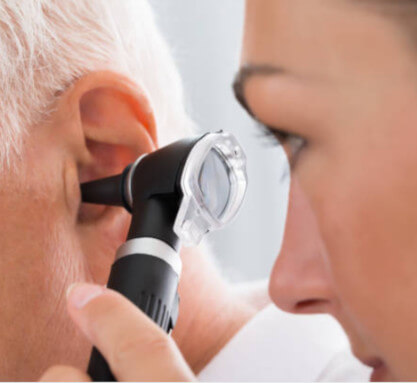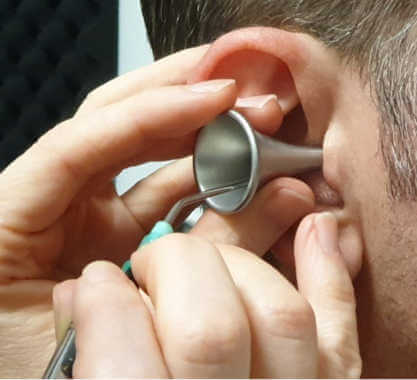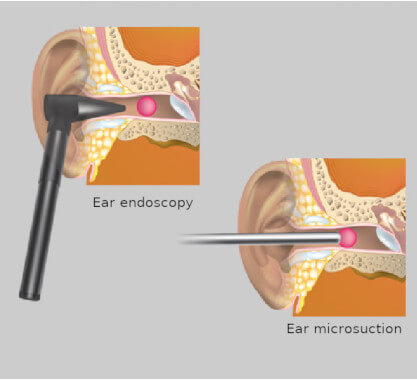Ears Cleared offers a safe, hygienic and professional service for removal of ear wax using microsuction.

Welcome to Ears Cleared. My name is Becky and I am a qualified HCPC registered Paramedic, who is fully insured and DBS checked. I studied advanced ear care and wax removal at Aston University in Birmingham. Moreover, I travel to you to perform ear wax removal safely, hygienically and professionally.

Microsuction ear wax removal uses a vacuum to gently remove any excess wax from your ears. It’s one of the most effective methods for cleaning your ears and can resolve the symptoms of blocked ears. Microsuction is much safer than syringing.


Wax is actually brilliant and has a function in the human body. Ear wax is made by glands in your ear canal and has certain chemicals that guard against bacteria. It slowly migrates out of your ear and removes debris as it goes. Wax ensures your ear canal has a specific moisture and pH content and keeps it healthy. Furthermore, it is also a natural insect repellent!
So, its not all bad but sometimes excessive wax can build up and get impacted causing ear problems which increases the likely hood of infections.
Sometimes your body just produces too much ear wax and it becomes excessive and this can become thicker and drier than is useful or usual
Although ear wax is actually important in helping to keep your ears clear people often use fingers, cotton buds, hair clips, pencil nibs and even paper clips to clean them out.
However, this actually pushes the wax further down and this wax can then build up and become impacted. You may have heard the familiar saying ‘put nothing smaller than your elbow in your ear’ and I would certainly agree with this!
There are other reasons why excessive wax can build up
You can have various unpleasant feelings related to excessive or impacted ear wax and these include: –
Difficulty hearing caused by too much wax making it hard to communicate
Sensation of fullness in the ear
Itchiness in the ear
A ringing sound (tinnitus)
Discharge from the ear
Dizziness or vertigo
Earache or pain
Coughing

I will be complying with current COVID regulations. Ensuring I have regular lateral flow tests and I will be wearing a mask, gloves and apron. My equipment is always clean and I use single-use sterile micro suction components for ear wax removal.
First of all, we can have a conversation about what’s happening with your ears. It’s likely that I will ask you about your ear health and general health and just have a chat!
I may advise you on measures you can take to make wax removal easier.
We can then make an appointment for me to visit you in the comfort of your own surroundings without needing to travel!
At your appointment I will have a little look in your ears with an instrument called an otoscope, which magnifies and lights up the inner ear.
Using the otoscope, I will check there isn’t an infection, a hole in your ear drum or an abnormality that needs medical attention and that it is just wax removal that is needed.
I will explain the wax removal procedure and equipment and use the most appropriate method of removal for the quantity and consistency of the wax discovered.
Before the procedure I will check you are happy to go ahead and the consent form is signed.
For the procedure I will use one or a combination of methods. Microsuction using a medical suction device which is hygienic and is the quickest and safest method of earwax removal. The process is much more comfortable than water irrigation as it avoids touching the sensitive skin of the ear canal, and has no contact with the eardrum reducing risk of complications.
Once I have finished removing the wax you should feel much better. Throughout the procedure I will document findings so we have a record of your ear health. I will give you follow up advice. Sometimes it takes more than one attempt to remove the wax or for some reason wax removal is unsuccessful we can discuss the next steps.

Microsuction uses a tiny vacuum attached to a medical suction unit to quickly and carefully remove the wax.
“Why do doctors no longer syringe ears?
The use of a metal ear syringe risks damaging the tympanic membrane and the oval and round windows of the ear.
Syringing is a risky procedure because it is difficult to control water pressure, which damage the ear and cause infection.” Evening Standard 28 Nov 2017